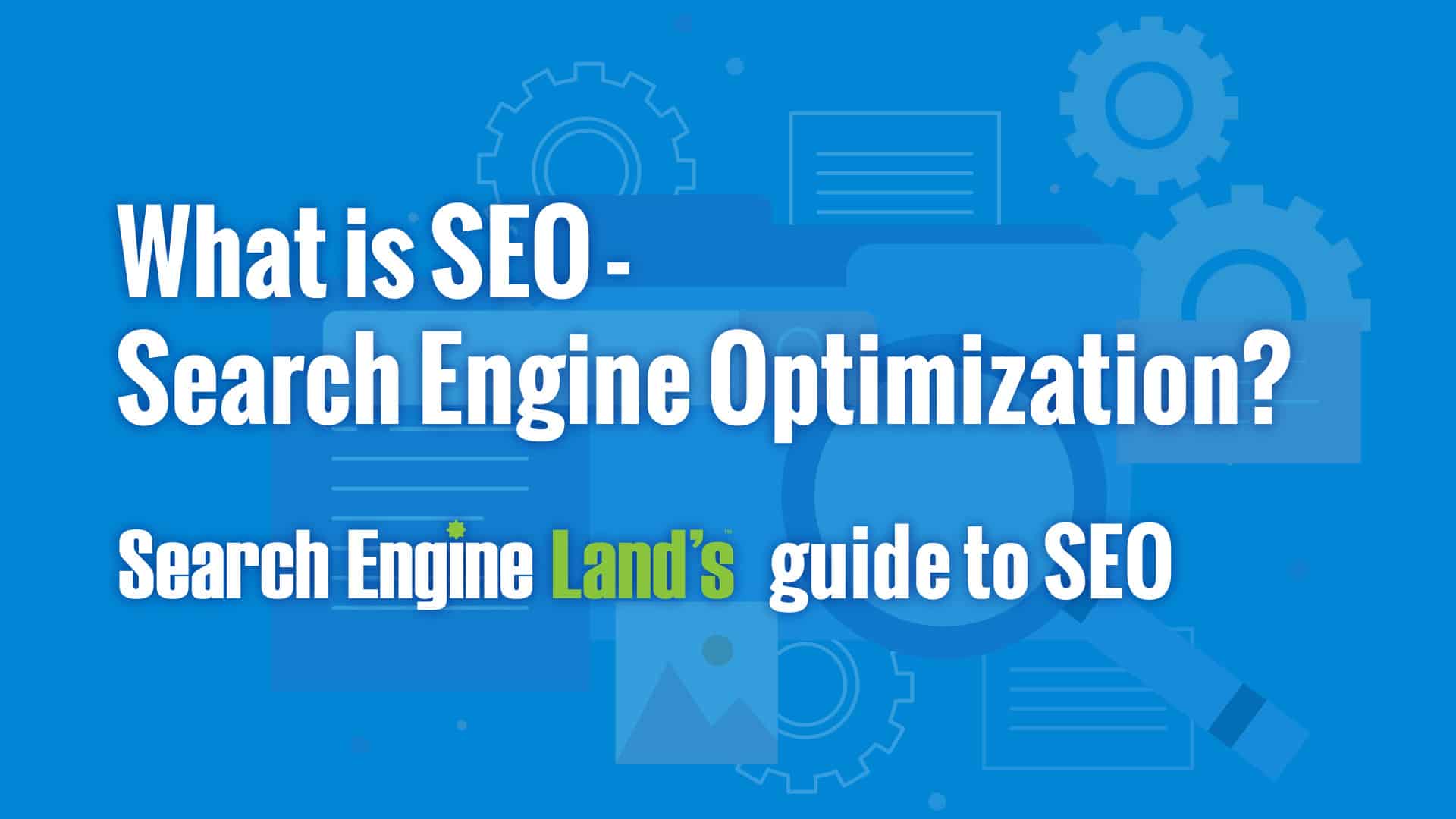How to Do SEO for Website Step by Step - The Ultimate Guide for 2024
To do SEO for a website step by step, begin by finding keywords relevant to your niche and optimizing title tags and meta-descriptions. Next, focus on off-page SEO and build links using outreach and guest-posting.
Starting a blog and creating useful content can also drive traffic and improve SEO. Additionally, pick topics that provide value to your business. It's important to understand the basics of SEO, such as keyword analysis, search intent, and on-page optimization.
Also, learn about link building and the importance of acquiring quality backlinks. Technical SEO, including best practices, is another crucial aspect of optimizing a website. By following these steps, you can improve your website's visibility on search engine result pages and increase organic traffic.

Credit: www.classcentral.com
▶▶ Read more : How to Advertise on Facebook? - The Ultimate Guide for Success
Keyword Research
Keyword research plays a crucial role in optimizing your website for search engines. By finding relevant keywords that align with your niche and target audience, you can enhance your website's visibility and attract more organic traffic. Follow these steps to conduct effective keyword research for your website:
Finding Relevant Keywords
When it comes to finding relevant keywords for your website, you want to identify words and phrases that are frequently searched by your target audience. Start by brainstorming common terms related to your business or industry. Use keyword research tools like Google Keyword Planner, Ahrefs, or SEMRush to explore keyword suggestions and get valuable insights into search volume and competition.
Make sure to focus on long-tail keywords, which are more specific and have higher chances of driving targeted traffic to your website. Long-tail keywords also have lower competition, making it easier for your website to rank higher in search engine results pages (SERPs).
Analyzing Search Intent
Understanding the search intent behind keywords is essential for optimizing your website's content. Analyzing search intent helps you align your content with what users are looking for when they search for specific keywords. There are different types of search intent, including informational, navigational, transactional, and commercial.
By analyzing search intent, you can create content that directly addresses users' queries and provides them with valuable information. This will not only boost your website's visibility but also increase engagement and conversions.
Determining Ranking Difficulty
Ranking difficulty refers to how challenging it is to rank for a particular keyword. It's essential to assess ranking difficulty to ensure that you can compete effectively in search engine rankings. Use keyword research tools to analyze the competition for your chosen keywords and evaluate their ranking difficulty.
Pay attention to factors like domain authority, backlink profile, and content quality of your competitors. By determining the ranking difficulty, you can focus on targeting keywords that offer a good balance between search volume and competition. This will give you better chances of ranking higher in SERPs and driving organic traffic to your website.
▶▶ Read more : B2B Content Marketing: Boost Your Business with Effective Strategies
By following these steps, you can conduct effective keyword research for your website and optimize your content for better search engine visibility. Remember to regularly review and update your keyword strategy as trends and search patterns change over time.

Credit: www.linkedin.com
On-page And Off-page Optimization
When it comes to SEO for your website, there are two essential areas you need to focus on: On-Page Optimization and Off-Page Optimization. On-Page Optimization involves optimizing the elements on your website itself, while Off-Page Optimization focuses on building external factors that influence your site's credibility and relevance in search engines' eyes.
Optimizing Title Tags And Meta-descriptions
In order to effectively optimize your website, it is crucial to pay attention to your title tags and meta-descriptions. Title tags are HTML elements that define the title of a webpage, and meta-descriptions provide concise summaries of a page's content. Both are important ranking factors that can significantly impact your website's visibility in search engine results pages (SERPs).
Here are some key steps to optimize your title tags and meta-descriptions:
- Include relevant keywords: Research and identify the keywords that your target audience is searching for. Incorporate these keywords naturally into your title tags and meta-descriptions to enhance their visibility in search results.
- Keep it concise and compelling: Title tags should ideally be around 50-60 characters, while meta-descriptions should be limited to 150-160 characters. Craft engaging and informative descriptions that entice users to click through to your website.
- Avoid duplication: Ensure that each title tag and meta-description on your website is unique, accurately reflecting the content of the respective page. Duplicate or generic tags and descriptions can hurt your SEO efforts.
- Experiment with rich snippets: Utilize structured data markup (such as Schema.org) to mark up your content. This can help search engines display additional information in SERPs, making your listings more eye-catching and attractive to users.
Building Backlinks Through Outreach And Guest-posting
Another crucial aspect of off-page optimization is building quality backlinks to your website. Backlinks, also known as inbound links, are links from external websites that point back to your site. Search engines view backlinks as a vote of confidence, indicating that your website is reputable and valuable.
▶▶ Read more : Best Influencer Marketing Platform for Small Business
Here's how you can start building backlinks through outreach and guest-posting:
- Identify relevant websites: Research and find websites in your niche or industry that have a good online presence and authority. These websites should align with your target audience and offer opportunities for guest-posting or collaboration.
- Create valuable content: Develop high-quality and unique content that resonates with the target website's audience. Craft compelling guest-post pitches that highlight the value you can provide to their readership.
- Establish relationships: Reach out to the website owners or editors with personalized emails, showcasing your expertise and proposing guest-post ideas. Build genuine relationships and demonstrate your willingness to contribute to their platform.
- Write and promote guest posts: Once your guest-post pitches are accepted, write well-researched and informative articles that add value to the target website's audience. Include relevant links back to your website, strategically placed within the content.
- Track and maintain backlinks: Monitor your backlink profile using tools like Google Search Console or third-party SEO software. Keep track of new backlinks and ensure that those links remain active and relevant. Regularly check for any toxic or spammy links that might negatively impact your SEO efforts.
Creating Valuable Content And Starting A Blog
Creating valuable content and starting a blog are crucial for both on-page and off-page optimization. Valuable content not only enhances the user experience on your website but also attracts organic traffic, encourages social sharing, and increases the likelihood of obtaining backlinks.
Here's how you can create valuable content and start a blog:
- Identify your target audience: Understand who your target audience is and what they're interested in. Conduct keyword research and use it to inform your content strategy.
- Create informative and engaging content: Write content that caters to the needs and interests of your target audience. Offer solutions to their problems, provide valuable insights, and showcase your expertise.
- Implement SEO best practices: Optimize your blog posts with relevant keywords, headers, and meta-tags. Ensure your content is well-structured, easy to read, and includes captivating visuals.
- Promote your content: Once your blog posts are published, promote them through social media channels, email newsletters, and relevant online communities. Encourage readers to share and engage with your content, further increasing its reach and visibility.
- Maintain consistency: Regularly publish high-quality content to establish yourself as an authority in your industry and maintain a loyal readership. Consistency is key to building trust and credibility.
By focusing on both on-page and off-page optimization techniques, you'll give your website the best chance of ranking higher in search engine results and attracting organic traffic. Remember to continuously monitor and adapt your SEO strategies to stay ahead of the competition and drive sustainable growth for your online presence.
▶▶ Read more : What is Influencer Marketing?-The Ultimate Guide for 2024
Technical Seo
Technical SEO refers to the optimization of a website's technical elements to improve its search engine visibility and performance. By focusing on technical SEO best practices, you can ensure that your website is easily accessible, crawlable, and indexable by search engines, which can ultimately lead to higher rankings and increased organic traffic. In this section, we will discuss the key aspects of technical SEO and how to optimize your website's performance using SEO tools like Google Analytics and Search Console.
Understanding Technical Seo Best Practices
When it comes to technical SEO, there are several best practices that you need to follow to ensure that your website is optimized for search engines. These practices include:
- Optimizing website speed and performance: One of the most important aspects of technical SEO is optimizing your website's speed and performance. This includes minimizing page load times, reducing server response times, and optimizing images and other media files to improve overall site speed.
- Ensuring mobile-friendliness: With the increasing use of mobile devices for browsing the internet, it is crucial to ensure that your website is mobile-friendly. This includes using responsive design and optimizing your site's layout and content to provide a seamless user experience across different devices.
- Implementing proper URL structure: A well-structured URL not only helps search engines understand the content of your pages but also improves user experience. Make sure your URLs are descriptive, concise, and include relevant keywords.
- Implementing structured data markup: Structured data markup provides additional information to search engines, making it easier for them to understand and display your content in search results. By implementing structured data markup, you can enhance your website's visibility and improve click-through rates.
- Ensuring crawlability and indexability: To ensure that search engines can crawl and index your website effectively, you need to check for any technical issues that may prevent search engines from accessing your content, such as broken links, duplicate content, and XML sitemap errors.
Optimizing Website Performance
Website performance plays a crucial role in both search engine rankings and user experience. To optimize your website's performance, you can follow these steps:
▶▶ Read more : Affiliate Marketing Vs Influencer Marketing: Which is More Effective?
- Optimize image sizes: Compress and resize images to reduce their file size without sacrificing quality. This can significantly improve page load times.
- Minify CSS and JavaScript files: Remove unnecessary spaces, comments, and line breaks from your CSS and JavaScript files to reduce their file size.
- Use caching: Implement browser caching to store static files on users' devices, reducing the need for them to be downloaded with each visit.
- Enable Gzip compression: Enable Gzip compression on your server to reduce the size of HTML, CSS, and JavaScript files transferred to users' browsers.
- Reduce server response time: Optimize your server's settings and configurations to ensure fast response times.
Utilizing Seo Tools Like Google Analytics And Search Console
To effectively monitor and optimize your website's performance, you need to utilize SEO tools like Google Analytics and Search Console. These tools provide valuable insights into your website's traffic, user behavior, and technical issues. By regularly analyzing the data provided by these tools, you can identify areas for improvement and take necessary actions to enhance your website's SEO performance.
Google Analytics allows you to track and analyze various metrics, including website traffic, user engagement, and conversion rates. It provides valuable information about your audience demographics, top-performing pages, and traffic sources. By understanding how users interact with your website, you can make data-driven decisions to improve user experience and increase conversions.
Google Search Console, on the other hand, helps you monitor your website's performance in search results. It provides valuable data about your website's indexation status, search queries, and organic rankings. By regularly checking your website's performance in Search Console, you can identify and resolve technical issues that may affect your website's visibility in search results.

Credit: searchengineland.com
Frequently Asked Questions For How To Do Seo For Website Step By Step
1.How Can I Do Seo On My Website?
Ans: To do SEO on your website, follow these steps: 1. Understand what your audience wants and provide valuable content. 2. Build trust with users through transparency and expertise. 3. Optimize your site for search engines by targeting relevant keywords. 4. Use internal and external links strategically.
5. Improve the technical aspects of your site, such as page speed and mobile-friendliness. Remember to prioritize user experience and avoid excessive advertisements.
2.How Do You Do Seo Step-by-step?
Ans: To do SEO step-by-step, follow these guidelines: 1. Conduct keyword research and narrow your list. 2. Create comprehensive and unique content based on your keywords. 3. Earn backlinks to your pages. 4. Improve your technical SEO. 5. Enhance your page's design and user experience.
By adhering to these steps, you can effectively optimize your website for search engines.
▶▶ Read more : 5 Types of Content Marketing: A Comprehensive Guide
3.How Do Beginners Do Seo?
Ans: To do SEO as a beginner, follow these steps: 1. Conduct keyword research. 2. Create high-quality and unique content based on your keywords. 3. Earn links to your website from reputable sources. 4. Optimize your website's technical aspects. 5. Improve your website's design and user experience.
Remember to focus on providing value to your audience and cultivating trust with your users. Avoid using distracting advertisements and use links strategically.
4.How Do You Write Seo Content Step-by-step?
Ans: To write SEO content step-by-step, follow these guidelines: 1. Keep sentences short, with a maximum of 20 words each. 2. Write in an SEO-friendly, human-like manner that is unique, plagiarism-free, and easy to understand. Use active voice. 3. Avoid starting sentences with certain words and phrases like "When it comes to," "If you," "Looking," and "In conclusion.
" Also, avoid passive voice. 4. Ensure your writing passes AI detection and sounds natural. 5. Stay within 50 words. Remember to conduct keyword research, create unique content, and optimize titles, meta descriptions, and internal links. Improve technical SEO and enhance the design and user experience of your pages.
Conclusion
To effectively optimize your website for SEO, it is crucial to follow a step-by-step approach. By conducting keyword research, creating valuable and comprehensive content, earning quality backlinks, and enhancing technical aspects, you can improve your website's visibility and ranking on search engine results pages.
Remember to focus on user experience, provide relevant and engaging content, and avoid distracting advertisements. By adhering to these guidelines, you can successfully implement SEO strategies to drive organic traffic to your website and achieve long-term success.








ফিউচার ড্রীম আইটির নীতিমালা মেনে কমেন্ট করুন। প্রতিটি কমেন্ট রিভিউ করা হয়।
comment url